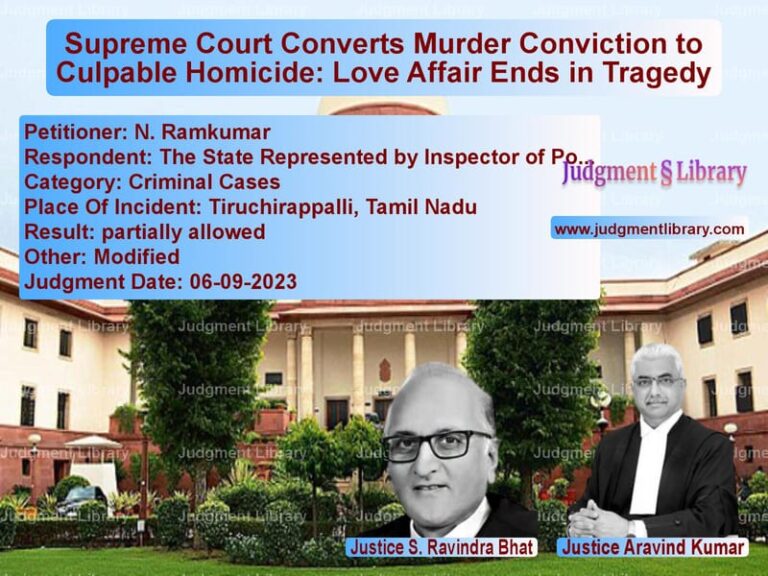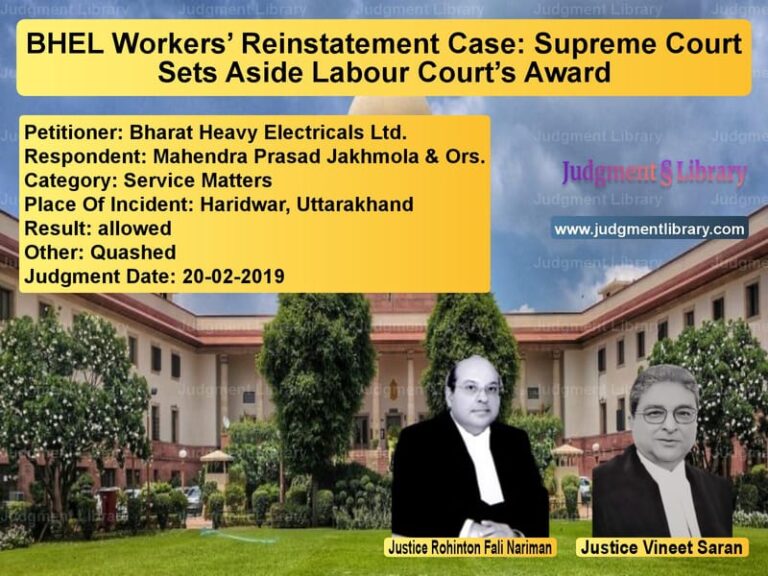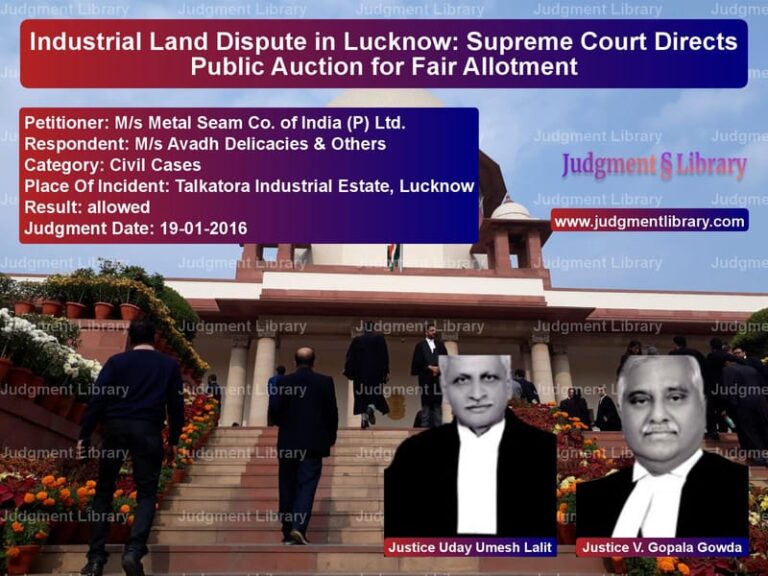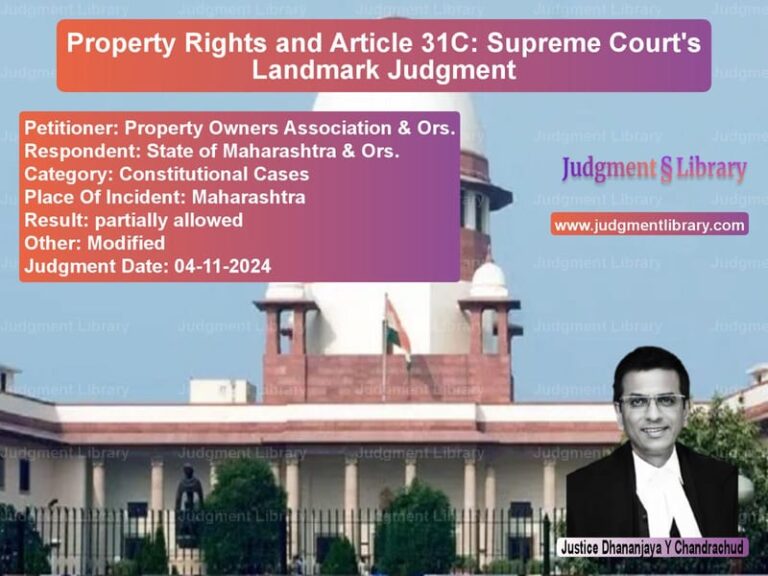Supreme Court Restores Municipal Dispute to Trial: Emphasizing Proper Judicial Review
The Supreme Court of India in its recent decision in the case of Municipal Board, Sumerpur v. Kundanmal & Ors., has highlighted the necessity for comprehensive judicial review at both trial and appellate levels, particularly in disputes involving municipal and governmental entities. This judgment underscores the need for detailed reasoning in judicial decisions to allow for proper appellate review.
The case originated from a dispute over the execution of certain works that were allegedly not completed according to the contractual specifications. The Municipal Board of Sumerpur challenged an appellate decision upholding a contractor’s claim against the municipality.
Background of the Case
The controversy began when the Municipal Board of Sumerpur entered into a contract with Kundanmal & Ors. for municipal works. Following the completion of the works, disputes arose regarding the quality and specifications of the work done. The Municipal Board contended that the work was substandard and refused to clear the final payments, leading the contractors to initiate legal action.
Initially, the trial court sided with the Municipal Board, but upon appeal, the High Court of Rajasthan reversed this decision, siding with the contractors. The High Court’s decision was brief and did not delve into the detailed examination of the evidence or the legal standards applied, which prompted the Municipal Board to appeal to the Supreme Court.
Supreme Court’s Examination
The Supreme Court criticized both the trial court and the High Court for their lack of detailed analysis in their judgments. The apex court emphasized that for an appellate court to properly review a decision, the lower court’s judgment must include:
- Detailed factual background.
- Clear identification of legal issues.
- Thorough examination of evidence.
- Specific findings based on the legal framework.
The Supreme Court noted that the absence of such details hampers the appellate process and potentially leads to miscarriages of justice, as appellate courts are left without a sufficient basis to review lower court decisions.
Decision and Remand
Given these deficiencies, the Supreme Court set aside the High Court’s ruling and remanded the case back to the trial court for a comprehensive re-examination. The Court instructed the trial court to provide a detailed judgment that adequately addresses all factual and legal issues presented by the case.
Implications of the Judgment
This decision is significant for several reasons:
- It reinforces the requirement for detailed reasoning in judicial decisions, which is essential for ensuring fair appellate review.
- It serves as a reminder to lower courts of the importance of providing a comprehensive analysis of both facts and law in their judgments.
- It underscores the judiciary’s role in maintaining checks and balances in public contract disputes.
The judgment will likely influence how lower courts handle similar cases in the future, particularly in disputes involving public entities where the scrutiny of contractual obligations is under greater public scrutiny.
Don’t miss out on the full details! Download the complete judgment in PDF format below and gain valuable insights instantly!
Download Judgment: Municipal Board, Sum vs Kundanmal & Ors. Supreme Court of India Judgment Dated 21-04-2017.pdf
Direct Downlaod Judgment: Direct downlaod this Judgment
See all petitions in Contract Disputes
See all petitions in Public Sector Employees
See all petitions in Legal Malpractice
See all petitions in Judgment by Abhay Manohar Sapre
See all petitions in partially allowed
See all petitions in Remanded
See all petitions in supreme court of India judgments April 2017
See all petitions in 2017 judgments
See all posts in Civil Cases Category
See all allowed petitions in Civil Cases Category
See all Dismissed petitions in Civil Cases Category
See all partially allowed petitions in Civil Cases Category







